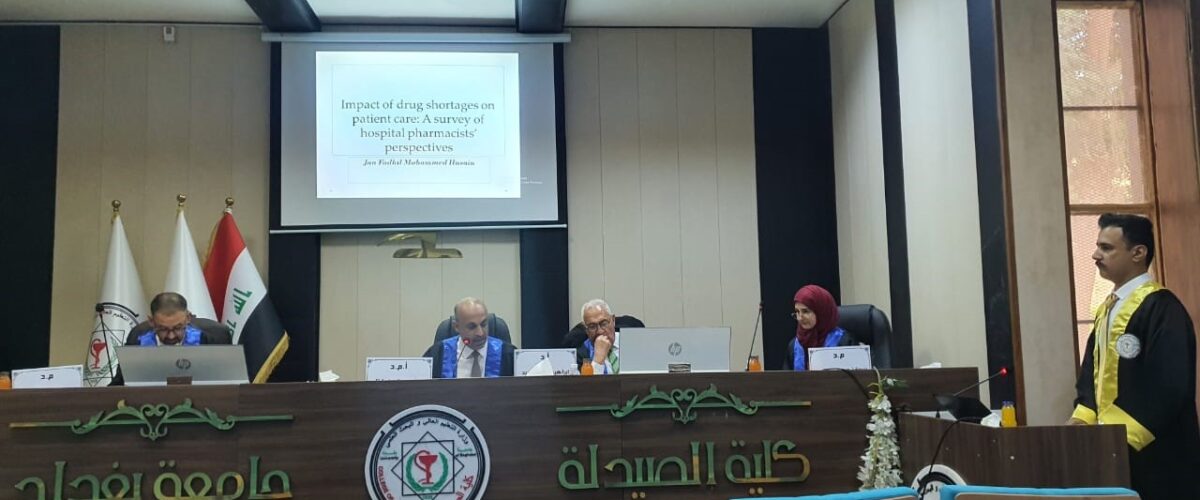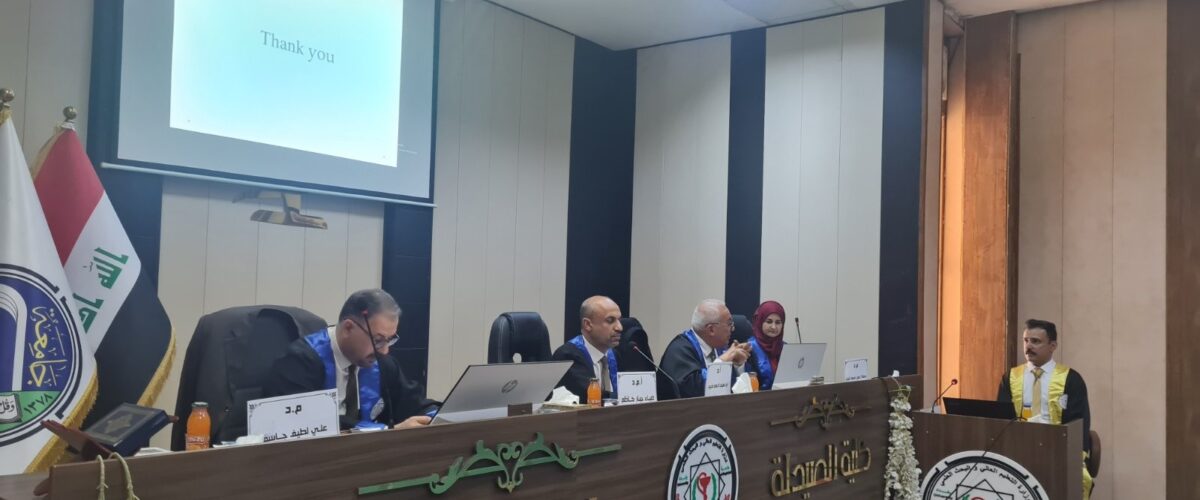The Faculty of Pharmacy discussed the Higher Diploma’s Degree thesis, entitled “Impact of drug shortages on patient care: A study of hospital pharmacists’ perspectives ” by Jan Fadhil Mohammad Husain and the supervisor, Lecturer Dr. Basma Zuheir Muhammed Naji in the Clinical Pharmacy Department. The thesis aimed to investigate the prevalence and characteristics of drug shortages in public Iraqi hospitals and the clinical and financial impact of drug shortages on patient care. A total of 302 pharmacists participated in the study, of whom 59.2% were in the age range of 24-29 years, 60.1% were female pharmacists and 80.5% were working in general hospitals. The majority of the pharmacists (87.5%) reported that drug shortages compromised the quality of medical care, 57% reported that drug shortages occurred monthly, and 47.9% reported that shortages lasted less than one month in the hospitals where they work. Generic drugs were the most frequently reported to be in shortage (63.4%), and antimicrobial agents were the most frequently reported to be hit by shortages (71.6%). Additionally, 51.5% of the pharmacists stated that drug shortages have led to rationing of the drug, and 39.6% of them said that adverse events due to medication shortages rarely occur. Most participants (67.3%) reported prolonged hospitalization, and 78.5% reported patients complaining about drug shortages, while 90.1% stated that patients had to buy their own medications due to shortages.Drug shortages is a critical healthcare concern that can result in medication errors and other various adverse outcomes for the healthcare system and patients including, increased financial burden on patients, increased length of hospital stays a delay in treatment, or even treatment cancellation. In order to overcome errors and unfavorable outcomes during a drug shortage, further study is required to establish the best management and mitigation strategies.




